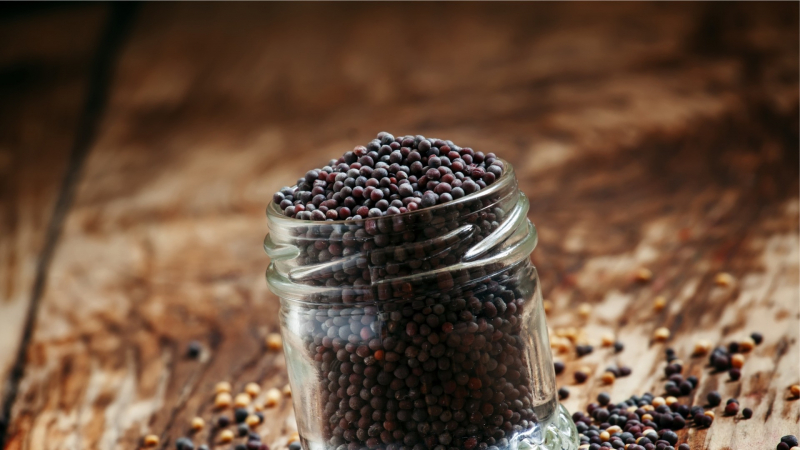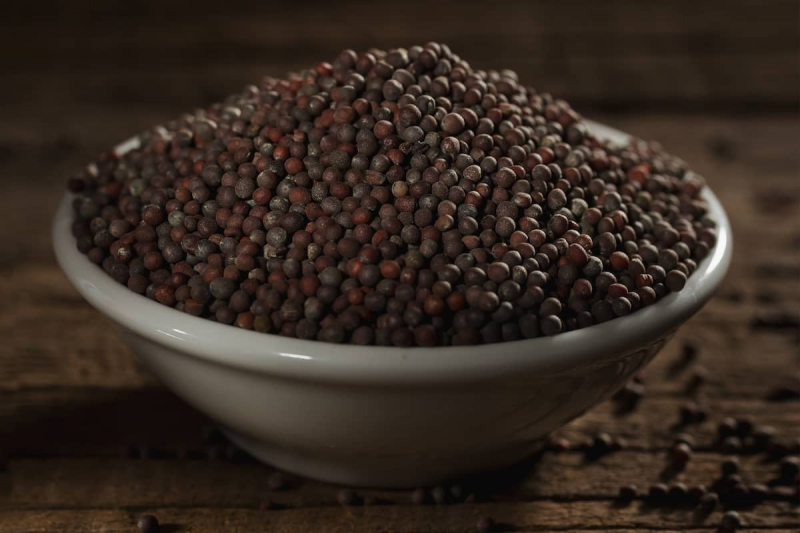Mustard Seeds (Rai)

Mustard seeds are tiny, spherical, and dark brown or black in appearance. They are relatives of cabbage, broccoli, and kale. They have been farmed for thousands of years in India and are frequently utilized in a variety of regional cuisines. They are frequently roasted, cooked, or processed into a powder or paste.
Mustard seeds are not only tasty but also healthy. Protein, fiber, calcium, iron, magnesium, selenium, and antioxidants are all abundant in them. They are also anti-inflammatory, antibacterial, antifungal, and antiseptic. They can aid in the reduction of blood pressure, cholesterol, and blood sugar levels. They can also help with digestion, immunity, and infection prevention. Mustard seeds are a vital component of many well-known Indian cuisines, demonstrating their versatility and flavor. Sarson ka saag, Aloo gobi, Kadhi, and Mustard fish curry are a few examples.
In India, black mustard seeds are the most prevalent and commonly used. They have a spicy and fiery flavor that can stimulate the appetite while also clearing the sinuses. Yellow mustard seeds are milder and sweeter, and they are commonly used in Western cuisines such as mustard sauces and dressings.











